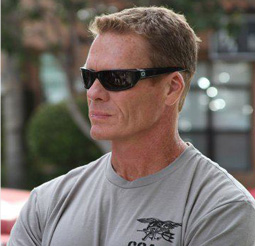Before you read the third part of this series, I recommend you check out the video from my speech at Colgate University on September 18th.
Uncover Your Purpose, Ignite Your Passion
Five weeks after I graduated from Colgate, I had moved from the open spaces of upstate New York to the crush of high-finance in a midtown Manhattan skyscraper. I was 21-years-old, dividing my time between working in a Big 8 accounting firm and graduate work at NYU. By the measures of the white-collar ladder in the business world, I was off to a killer start. The competitive atmosphere and excitement appealed to me and I had little inclination to think much deeper than the coursework of my MBA program as I ground my way toward a CPA.
Coopers and Lybrand (which would later merge into Price Waterhouse) served up the kind of crucible experience one might expect from an international firm routinely sweeping up billions of dollars each year in accounting fees. At my desk, as I crammed away, absorbing the language of auditing—non-sampling risk, inventory cost flow, gross margin percentage, risk assessment procedures—I would occasionally look at the new, bustling world I was submerged within. The hierarchy was on vivid display. The culture of high finance made sure the top investment bankers and traders were made to feel special. By comparison, because of my paycheck and greenhorn status, the culture made damn sure I knew I was anything but special. Within the rules of the hierarchy, because of the money they made, the top bankers and traders were more far more valuable than me. Personally, I had a hard time accepting this. Money just didn’t have that brand of sway over me. And, frankly, some of these guys were absolute jerks, bloated with self-importance and ego, which I found rancid. Was that what I wanted out of life?
Six months in I noticed a discordant unease growing within me. Something was off. I found myself identifying with a disturbing phrase. Cog in a Machine.
I tried to force the thought out of my mind, but it became increasingly difficult to ignore the idea that I was just a bit player in a world where money was the purest and only real measurement of human value.
This is how my mid-life crisis began at 22 years of age.
Trudging home from work one night my peripheral vision noticed something and I was brought to a stop. It was a poster displayed in a window at a Navy recruiting office. The poster depicted guys doing a bunch of things that were light years away from my life on the first rungs of the white-collar ladder. These guys weren’t bound to desks—they were parachuting through the sky, climbing mountainous terrain and blowing things up. It looked scary. It looked fun. But it wasn’t the pictures that rattled me. Rather, it was a set of words running across the top of the poster. They were pulsing at me as if they were a beacon in the night sky.
BE SOMEONE SPECIAL
Crap. That was exactly it. There was nothing special about me. Why not? What had happened to me? On the path I was on, would I ever feel special again? The way I did as a kid running through the woods soaking up the awesomeness of the world. That thrill I once had in life was long, long gone. Cog in a machine— a phrase that felt like a prison. And here I stood, frozen, confronted by a poster exhorting me to be someone special again. What a cool idea. Why not? What the hell was holding me back? Why couldn’t I recapture that feeling in my accounting career? But my monkey mind cajoled me: “Mark, there is nothing special about being a CPA.”
I agreed.
It would be several years before I found the missing piece in the puzzle. Being special was easy if you could identify your primal purpose in life—beyond survival and procreation!—and align with it. When the words on the poster shook me, I was completely misaligned. I was living life in accordance with values and a purpose there were not mine. They were someone else’s. I was going hard and fast in a direction meaningless to me. I had no passion for it. It was literally killing me, and killing me quickly.
Growing up, it was never mentioned to me that I might have a unique purpose in life. Never. My family didn’t tell me, my teachers didn’t tell me, society didn’t tell me. What I heard from all of these well-intentioned sources was the usual: I had to go to school, get good grades, then go out into the world and get a good job. The job was mostly determined by family programming, aptitude and, quite frankly, whichever doors opened up after stepping into the void of “the real world.”
But the words on that poster planted a sense of doubt and wonder in the recesses of my mind. After many soul-searching hours on the meditation bench in contemplation, my true purpose finally showed itself. It seemed to come from the quiet depths within, like a vision. I believe this is the way it’s supposed to happen. We can’t think our way to our purpose like we might draw up a flowchart. Rather we must listen closely and listen with our whole being. When we are still and listen to the deep-rooted stories that drive our lives, the purpose will reveal itself as a new story, a possible future that may be radically different than the one we find ourselves stewing in. Once revealed we feel compelled to align with it. When we align with our purpose, passion long lost is once again ignited.
We feel special, again.
Leave a Reply cancel reply
You must be logged in to post a comment.



No Comments